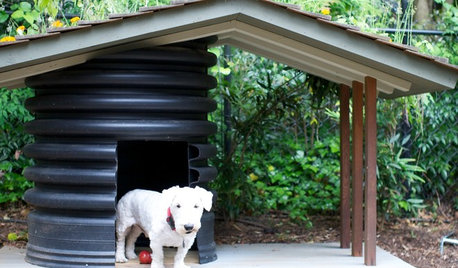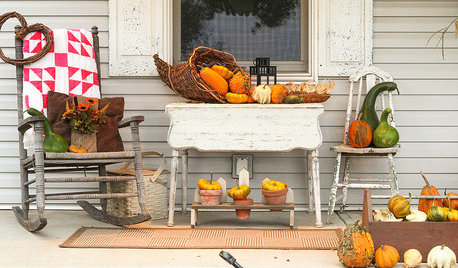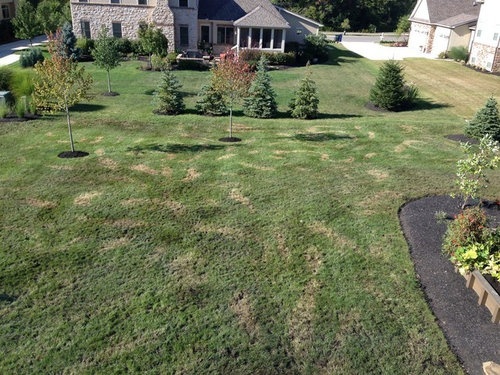Help, Compost Top Dressing Burned/Yellowed Yard
rkdjc
10 years ago
Related Stories

GARDENING GUIDESGet on a Composting Kick (Hello, Free Fertilizer!)
Quit shelling out for pricey substitutes that aren’t even as good. Here’s how to give your soil the best while lightening your trash load
Full Story
PETSHow to Help Your Dog Be a Good Neighbor
Good fences certainly help, but be sure to introduce your pup to the neighbors and check in from time to time
Full Story
DECLUTTERINGDownsizing Help: How to Edit Your Belongings
Learn what to take and what to toss if you're moving to a smaller home
Full Story
PETS6 Ways to Help Your Dog and Landscape Play Nicely Together
Keep your prized plantings intact and your dog happy too, with this wisdom from an expert gardener and dog guardian
Full Story
HOUZZ TOURSMy Houzz: Saturated Colors Help a 1920s Fixer-Upper Flourish
Bright paint and cheerful patterns give this Spanish-style Los Angeles home a thriving new personality
Full Story
SELLING YOUR HOUSE10 Low-Cost Tweaks to Help Your Home Sell
Put these inexpensive but invaluable fixes on your to-do list before you put your home on the market
Full Story
EXTERIORSHelp! What Color Should I Paint My House Exterior?
Real homeowners get real help in choosing paint palettes. Bonus: 3 tips for everyone on picking exterior colors
Full Story
PORCHESA Peek at 2 Prettily Dressed Fall Porches
Pumpkins, fall flowers and flea market finds help two Ohio porches get into the seasonal spirit
Full Story
GARDENING GUIDESHow to Keep Your Citrus Trees Well Fed and Healthy
Ripe for some citrus fertilizer know-how? This mini guide will help your lemon, orange and grapefruit trees flourish
Full Story
EARTH DAYGrow a Beautiful Garden With Ecofriendly Greywater
Reducing home water waste means lower bills and a healthier planet. Here's how to set up a greywater home irrigation system that can help
Full Story








dchall_san_antonio
rkdjcOriginal Author
Related Professionals
Fort Lee Landscape Architects & Landscape Designers · Grand Haven Landscape Architects & Landscape Designers · Maple Heights Landscape Architects & Landscape Designers · Hartford Landscape Contractors · Salem Landscape Contractors · Azalea Park Landscape Contractors · Beverly Hills Landscape Contractors · Hawthorne Landscape Contractors · North Chicago Landscape Contractors · Suitland Landscape Contractors · Tavares Landscape Contractors · Glenvar Heights Swimming Pool Builders · Montclair Swimming Pool Builders · Palos Verdes Estates Swimming Pool Builders · Santa Paula Swimming Pool Buildersdchall_san_antonio
rkdjcOriginal Author
dchall_san_antonio
mulchmama
Brandon Arnold
mbbrown3
Brandon Arnold
dchall_san_antonio